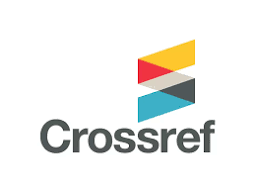Identifying perceptions and knowledge gaps among pre-clinical and clinical medical students regarding placebo therapy
DOI:
https://doi.org/10.59736/IJP.22.03.915Keywords:
Placebo, Placebo effect, Organic diseases, Psychogenic disorders, Clinical trialsAbstract
Background: Misleading definitions and perceptions of placebo and placebo effect result in fewer realizations on the subject, hence reducing its perceived importance and applications. This study aims to assess undergraduate medical students' perceptions and knowledge gaps regarding placebo therapy across different stages of their education.
Methods: A comparative cross-sectional study was conducted for six months, from December 2022 to May 2023, among 350 pre-clinical students (1st and 2nd year MBBS) and 526 clinical students (3rd, 4th, and Final-year MBBS) to assess their perceptions regarding placebo and placebo effect through a validated questionnaire. SPSS was used for analyses, and Pearson's Chi-square was applied, keeping the statistically significant value of <0.05.
Results: The study included 876 medical students, with 350 pre-clinical and 526 clinical participants. The mean age was 21.32 years (±1.606). A significant gender distribution was observed, with 45.5% males and 54.5% females. Clinical students demonstrated a greater acceptance of placebo use (68.3% vs. 62.3%, p=0.031) and were more likely to find placebo therapy ethical in psychological cases (70.3% vs. 60.3%, p=0.006). Knowledge assessment revealed that 65% had fair knowledge of placebo therapy, 31.8% had good knowledge, while only 3.2% were highly knowledgeable.
Conclusion: The study revealed that many pre-clinical and clinical students held misconceptions about placebo therapy, believing it permissible and beneficial in treating organic disorders. This highlights a significant knowledge gap, emphasizing the need for improved education on placebo use and ethics.
References
Howick J. The relativity of ‘placebos’: defending a modified version of Grünbaum’s definition. Synthese. 2017 Apr; 194(4):1363-96.
Sheldon R, Opie-Moran M. The placebo effect in cardiology: understanding and using it. Can J Cardiol. 2017; 33(12):1535–42.
Koterov AN. Historical milestones of the invention and use of placebo. Farmakoekonomika. 2023 Jan 8; 15(4):502-22.
Howe LC, Goyer JP, Crum AJ. Harnessing the placebo effect: Exploring the influence of physician characteristics on placebo response. Health Psychol. 2017; 36(11):1074.
Frisaldi E, Shaibani A, Benedetti F. Understanding the mechanisms of placebo and nocebo effects. Swiss Med Wkly. 2020 ;(35).
Haas JW, Rief W, Doering BK. Open-label placebo treatment: Outcome expectations and general acceptance in the lay population. Int J Behav Med. 2021; 28(4):444–54.
Arnold MH, Finniss D, Luscombe GM, Kerridge I. An exploration of knowledge and attitudes of medical students and rheumatologists to placebo and nocebo effects: threshold concepts in clinical practice. J Med Educ Curric Dev. 2020; 7:2382120520930764. Doi: 10.1177/2382120520930764.
Hardman DI, Geraghty AW, Howick J, Roberts N, Bishop FL. A discursive exploration of public perspectives on placebos and their effects. Health Psychol Open. 2019 Feb; 6(1):2055102919832313. Doi: 10.1177/2055102919832313.
Moerman DE. Explanatory mechanisms for placebo effects: cultural influences and the meaning response. The science of the placebo: Toward an interdisciplinary research agenda. London: BMJ Books. 2002:77-107.
Joyce P, Wardle J, Zaslawski C. Medical student attitudes towards complementary and alternative medicine (CAM) in medical education: a critical review. J Complement Integr Med. 2016 Dec 1; 13(4):333-45.
Lim EH, Seet RC. Attitudes of medical students to placebo therapy. Intern Med J. 2007 Mar; 37(3):156-60.
Howick J, Bishop FL, Heneghan C, Wolstenholme J, Stevens S, Hobbs FR, et al. Placebo use in the United Kingdom: results from a national survey of primary care practitioners. PLoS One. 2013 Mar 20; 8(3).
Bernstein MH, Locher C, Stewart‐Ferrer S, Buergler S, DesRoches CM, Dossett ML,et al. Primary care providers' use of and attitudes towards placebos: An exploratory focus group study with US physicians. Br J Health Psychol. 2020 Sep; 25(3):596-614.
Fässler M, Meissner K, Schneider A, Linde K. Frequency and circumstances of placebo use in clinical practice-a systematic review of empirical studies. BMC Med. 2010 Dec; 8(1):1-0.
Hughes J, Greville-Harris M, Graham CA, Lewith G, White P, Bishop FL. What trial participants need to be told about placebo effects to give informed consent: a survey to establish existing knowledge among patients with back pain? J Med Ethics. 2017 Dec 1; 43(12):867-70.
Downloads
Published
Issue
Section
License
Copyright (c) 2024 Haseeba Mukhtar, Syeda Unzila, Taskeen Baber, Syeda Mahdokht Shah, Sujjad Khan, Sidra Khan

This work is licensed under a Creative Commons Attribution-NonCommercial 4.0 International License.
Readers may “Share-copy and redistribute the material in any medium or format” and “Adapt-remix, transform, and build upon the material”. The readers must give appropriate credit to the source of the material and indicate if changes were made to the material. Readers may not use the material for commercial purpose. The readers may not apply legal terms or technological measures that legally restrict others from doing anything the license permits.


